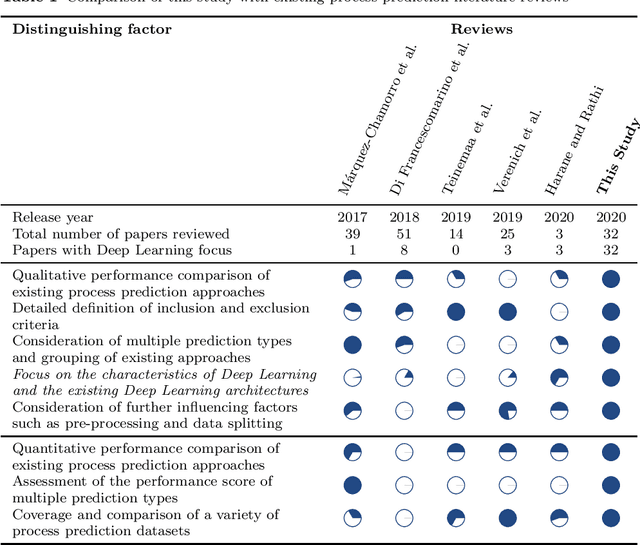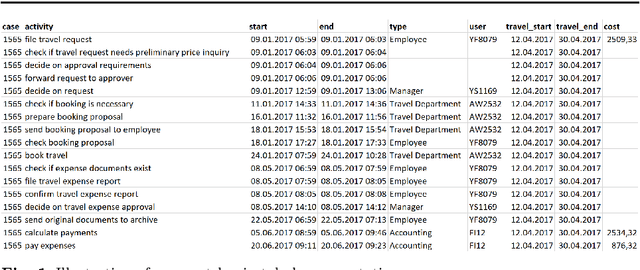Dominic A. Neu
A systematic literature review on state-of-the-art deep learning methods for process prediction
Jan 26, 2021



Abstract:Process mining enables the reconstruction and evaluation of business processes based on digital traces in IT systems. An increasingly important technique in this context is process prediction. Given a sequence of events of an ongoing trace, process prediction allows forecasting upcoming events or performance measurements. In recent years, multiple process prediction approaches have been proposed, applying different data processing schemes and prediction algorithms. This study focuses on deep learning algorithms since they seem to outperform their machine learning alternatives consistently. Whilst having a common learning algorithm, they use different data preprocessing techniques, implement a variety of network topologies and focus on various goals such as outcome prediction, time prediction or control-flow prediction. Additionally, the set of log-data, evaluation metrics and baselines used by the authors diverge, making the results hard to compare. This paper attempts to synthesise the advantages and disadvantages of the procedural decisions in these approaches by conducting a systematic literature review.
 Add to Chrome
Add to Chrome Add to Firefox
Add to Firefox Add to Edge
Add to Edge